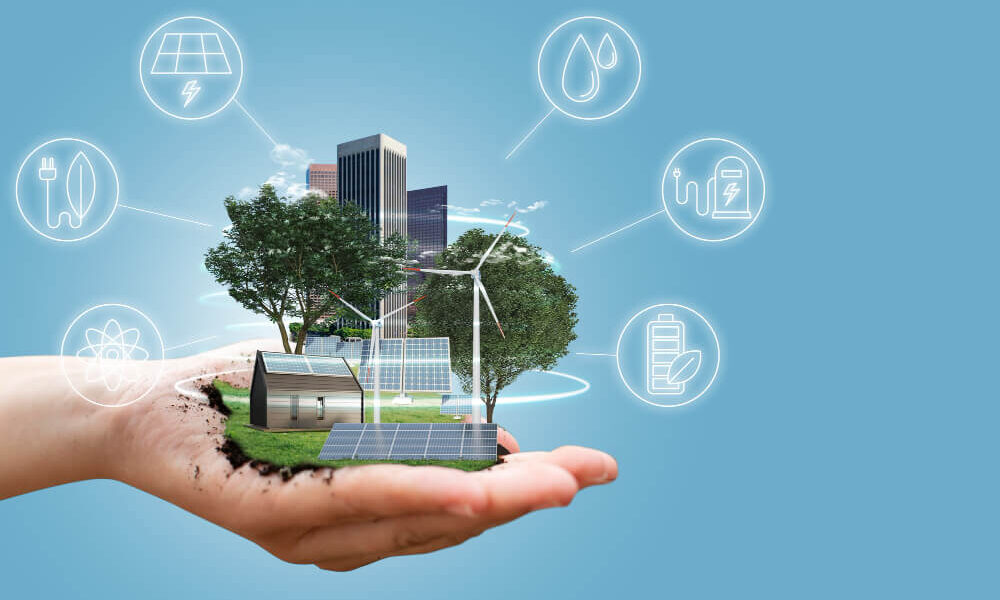Air conditioning is an essential aspect of modern living, especially in regions with extreme weather conditions. However, traditional air conditioning systems are notorious for their high energy consumption, contributing significantly to environmental degradation through increased carbon emissions and energy wastage. With the growing awareness of climate change and the urgent need for sustainable practices, energy-efficient air conditioning (AC) installation options have become crucial. This essay explores the environmental benefits of adopting energy-efficient AC systems, highlighting how they contribute to a sustainable future.
1. Reduction in Energy Consumption
One of the most significant environmental benefits of energy-efficient AC systems is the reduction in energy consumption. Traditional air conditioners consume a substantial amount of electricity, which is often generated from fossil fuels. Energy-efficient models, such as those with high Seasonal Energy Efficiency Ratio (SEER) ratings or those using inverter technology, operate more efficiently by adjusting the compressor speed based on the cooling demand. This results in less electricity usage, thereby conserving energy resources and reducing the overall demand for power generation.
2. Lower Carbon Emissions
Reducing energy consumption impacts the level of carbon emissions released into the atmosphere. Fossil fuel power plants, which generate a large portion of the world’s electricity, emit significant amounts of carbon dioxide (CO2) and other greenhouse gases (GHGs). By installing energy-efficient AC systems, the demand for electricity decreases, leading to lower emissions from power plants. This reduction in greenhouse gas emissions helps mitigate the adverse effects of climate change, contributing to a healthier and more stable environment.
3. Decreased Strain on Power Grids
Energy-efficient AC units place less strain on power grids, particularly during peak demand periods such as hot summer months. Traditional air conditioning systems can cause spikes in electricity usage, leading to potential blackouts or the need for additional power generation. Energy-efficient systems help stabilize the grid by consuming less power, reducing the likelihood of power outages and the necessity for backup power sources. This stability is crucial for maintaining a reliable and sustainable energy infrastructure.
4. Reduction in Heat Island Effect
Urban areas often experience higher temperatures than their rural counterparts due to the heat island effect, where human activities and infrastructure, such as air conditioning units, contribute to increased temperatures. Energy-efficient AC systems emit less heat during operation compared to traditional units. This reduction in heat output helps lower the ambient temperature in urban areas, mitigating the heat island effect and improving overall air quality. Cooler urban environments also decrease the energy required for cooling buildings, creating a positive feedback loop of energy savings and environmental benefits.
5. Use of Eco-Friendly Refrigerants
Modern energy-efficient AC systems often use eco-friendly refrigerants that have a lower Global Warming Potential (GWP) compared to traditional refrigerants like chlorofluorocarbons (CFCs) and hydrofluorocarbons (HFCs). These newer refrigerants, such as R-410A and R-32, are less harmful to the ozone layer and contribute less to global warming. The adoption of these refrigerants in energy-efficient AC systems significantly reduces their environmental impact, aligning with international efforts to phase out ozone-depleting substances and mitigate climate change.
6. Enhanced Durability and Longevity
Energy-efficient AC systems are typically designed with advanced technology and higher-quality components, making them more durable and longer-lasting than conventional units. This durability translates into less frequent replacements and reduced electronic waste. Fewer replacements mean less manufacturing, transportation, and disposal activities, all of which contribute to environmental degradation. By investing in energy-efficient AC systems, consumers can help reduce the environmental footprint associated with the entire lifecycle of air conditioning units.
The environmental benefits of energy-efficient options in AC installation in Grand Rapids, MI, are manifold. They lead to significant reductions in energy consumption and carbon emissions, decrease strain on power grids, and help mitigate the heat island effect in urban areas. Additionally, the use of eco-friendly refrigerants, enhanced durability, and compatibility with renewable energy sources further amplify their positive environmental impact. As climate change continues to pose a critical challenge, adopting energy-efficient air conditioning systems is an essential step toward a more sustainable and environmentally friendly future.
Are you looking for a reliable service company for AC maintenance in Grand Rapids, MI? Look no further than R&R Mechanical Services to upgrade to an energy-efficient AC system today. Call their experts now for a cooler home and a healthier planet!
